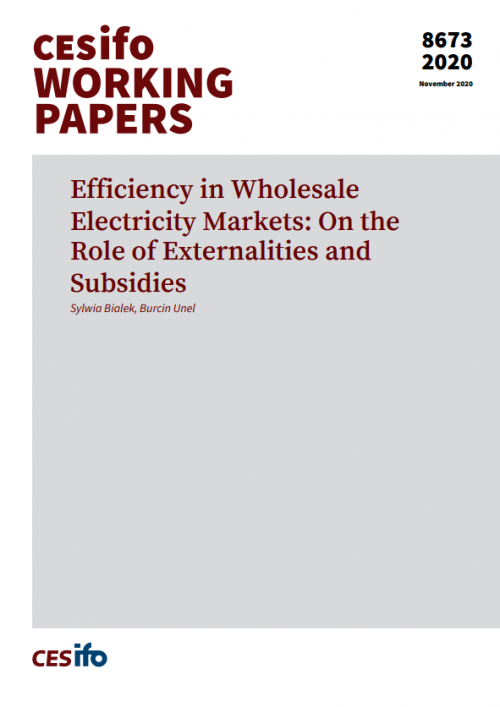As the electricity sector is one of the leading sources of greenhouse gases, numerous national and sub-national governments are setting ambitious goals for reducing the sector's emissions. To achieve these goals, policymakers often rely on per-MWh subsidies for pollution-free electricity generation, such as: clean energy mandates, technology-specific payments, and production tax credits.
In the U.S., the application of those subsidies raised worries about their effect on capacity markets - wholesale markets which complement wholesale energy markets in some regions in ensuring adequate energy supply. The concern that subsidies may suppress capacity prices below their competitive levels triggered controversial capacity market reforms within three U.S. electricity trading regions: PJM, New York-ISO (NYISO) and ISO-New England (ISO-NE). The reforms aim at mitigating the market effects of subsidies.
In our article published in Energy Economics, we use economic modeling to analytically show the relationship between generation subsidies and energy and capacity markets. We show that the feared capacity price suppression can happen only under limited circumstances and that in the short-run, the subsidies will tend to increase capacity prices. We also demonstrate that while subsidies cannot produce the first-best outcomes, there exists a range of welfare-enhancing subsidy rates and designs that improve welfare, such that regulators should think of subsidies as one of the tools available for increasing electricity market efficiency.

